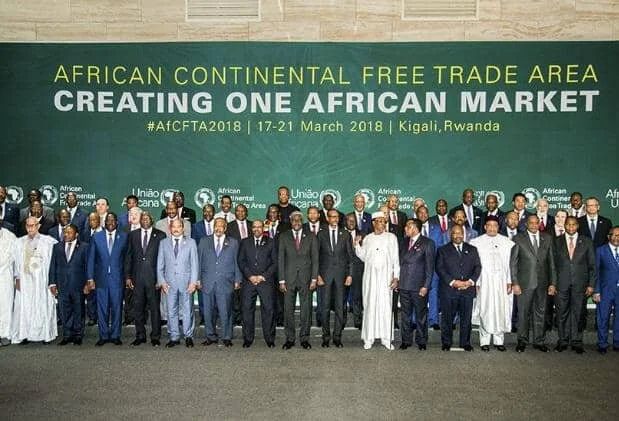Trade In the Digital Economy: A Tralac Collection
At any given moment, international trade is being transacted across Africa. The supermarket buyer emails the supplier she met at a recent trade show to place a sample order. The car manufacturer uses the proprietary supply chain software for their company to obtain more seatbelts for the factory. The farmer checks the weather app. A truck driver uses an online map to navigate a new route. A shipper secures warehouse facilities using the online booking system of a logistics firm. A customs agent processes a shipment of goods using ASYCUDA. A migrant mineworker sends money home to his family. and so on.
The wheels of international trade are powered by the Internet. From the smallest informal trade to a major supply agreement, contracts are transacted online; whether via email, e-commerce store, or digital platform. Any formal trade relies on the Internet for implementation – financing, documentation, and logistics are all digitally driven, and becoming more and more so. Whether it is an emailed order, an online purchase, or merely the financial arrangements behind the transaction, the Internet will inevitably be used in conducting international trade.
This is not the future; it is not some hazy tomorrow that we cannot predict. This is the current reality of trade, even on a continent where connectivity lags and digital literacy is low by international standards. Digitalization will be an inevitable part of trade in 2020 and beyond.
There are huge opportunities for digitalization to increase and improve Africa’s trade environment. It is crucial to the success of the African Continental Free Trade Area (AfCFTA) that the reality of today’s digital economy is recognized and reflected. The AfCFTA Agreement itself has a role to play. Although not shaped as the kind of 21st-century agreement that would provide a rules-based framework for the digital economy, there are areas, still to be negotiated, that have potential to shape the free trade area in a more digital-friendly way.
More importantly, the AfCFTA is not just a free trade agreement, it is a flagship project of the African Union (AU), situated within Agenda 2063, Africa’s framework for structural transformation. This means that the development of the continental free trade area need not rely only on the text of the AfCFTA Agreement but will be supported by a suite of other Agenda 2063 initiatives. It is through these initiatives that African Union (AU) members have the best chance and the most promising opportunities to create a free trade area that does not stand in the way of the digitization of the economy and encourages trade and economic development within the digital economy.
The trade-related benefits to be derived from the digitalization of the economy are well known but bear repeating. In particular, our work suggests digitalization can enable e-commerce; reduce transaction costs; reduce barriers to cross-border trade; automate production, thereby improving efficiency and reducing costs; and improve logistics.
In addition, digitalization is transforming how we trade in services – from offshoring to cloud services, to online outsourcing – the Internet has made all kinds of new services trade possible. E-commerce and digitalization particularly offer opportunities for marginalized groups, such as young people, rural citizens, and women to more easily engage in the economy – but policies are needed to ensure that access gaps are narrowed.
The views and opinions expressed here belong to the author or interviewee and do not necessarily reflect those of The Youth Cafe.


